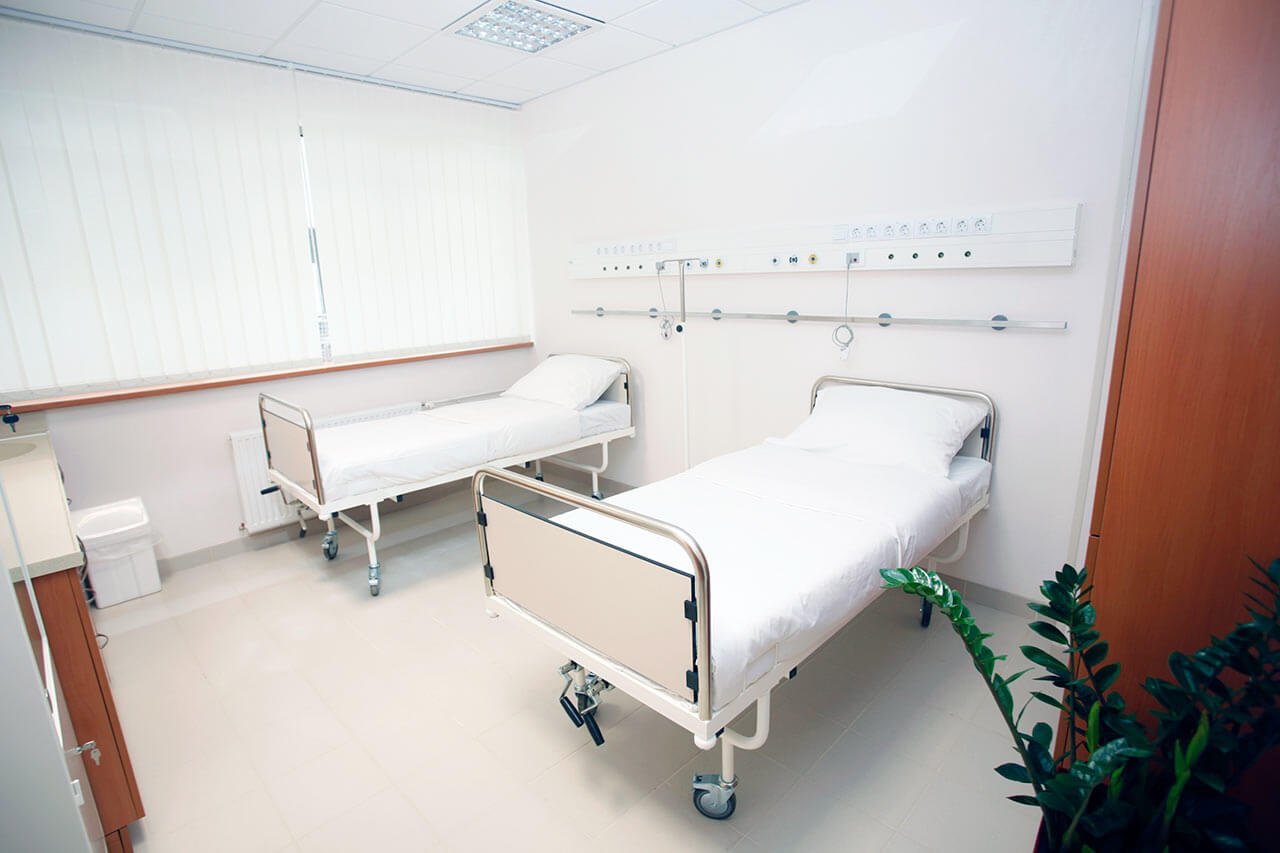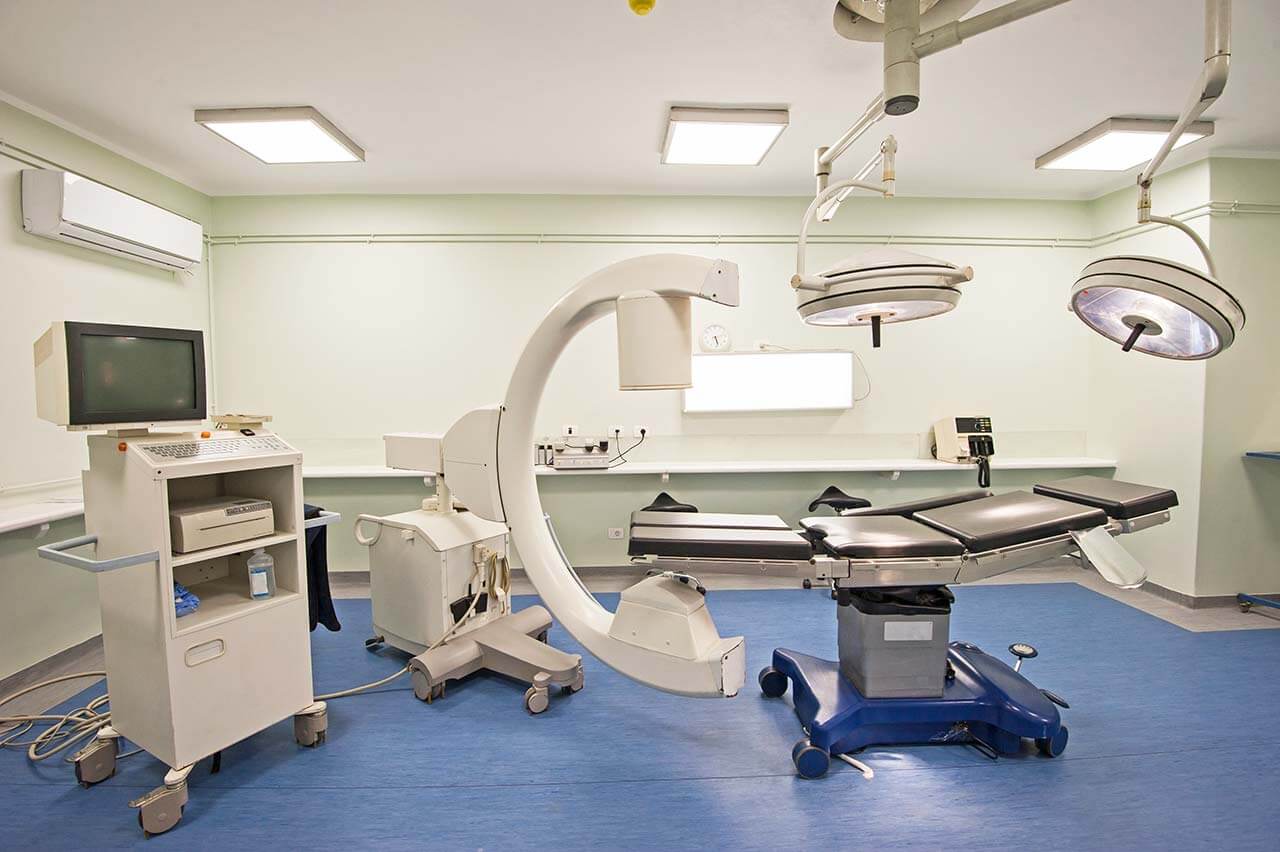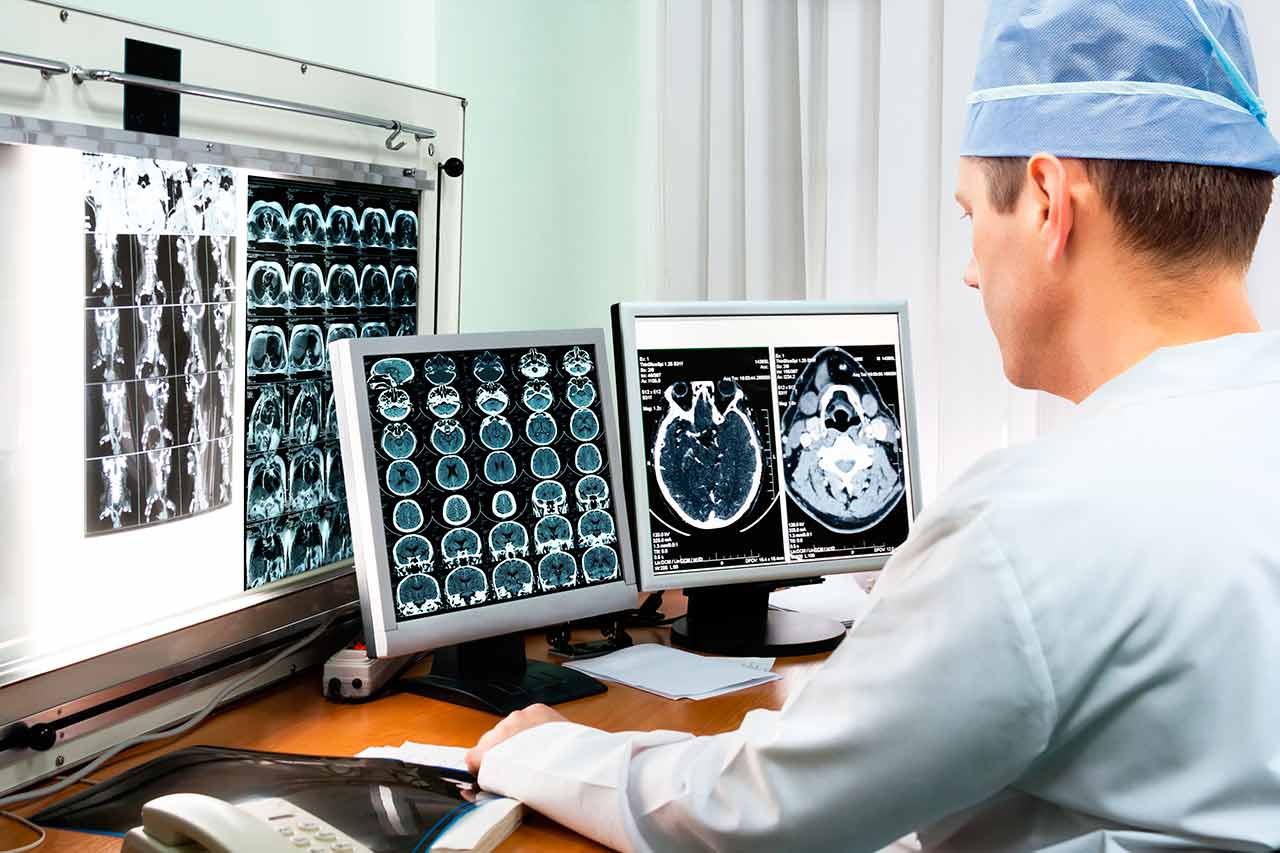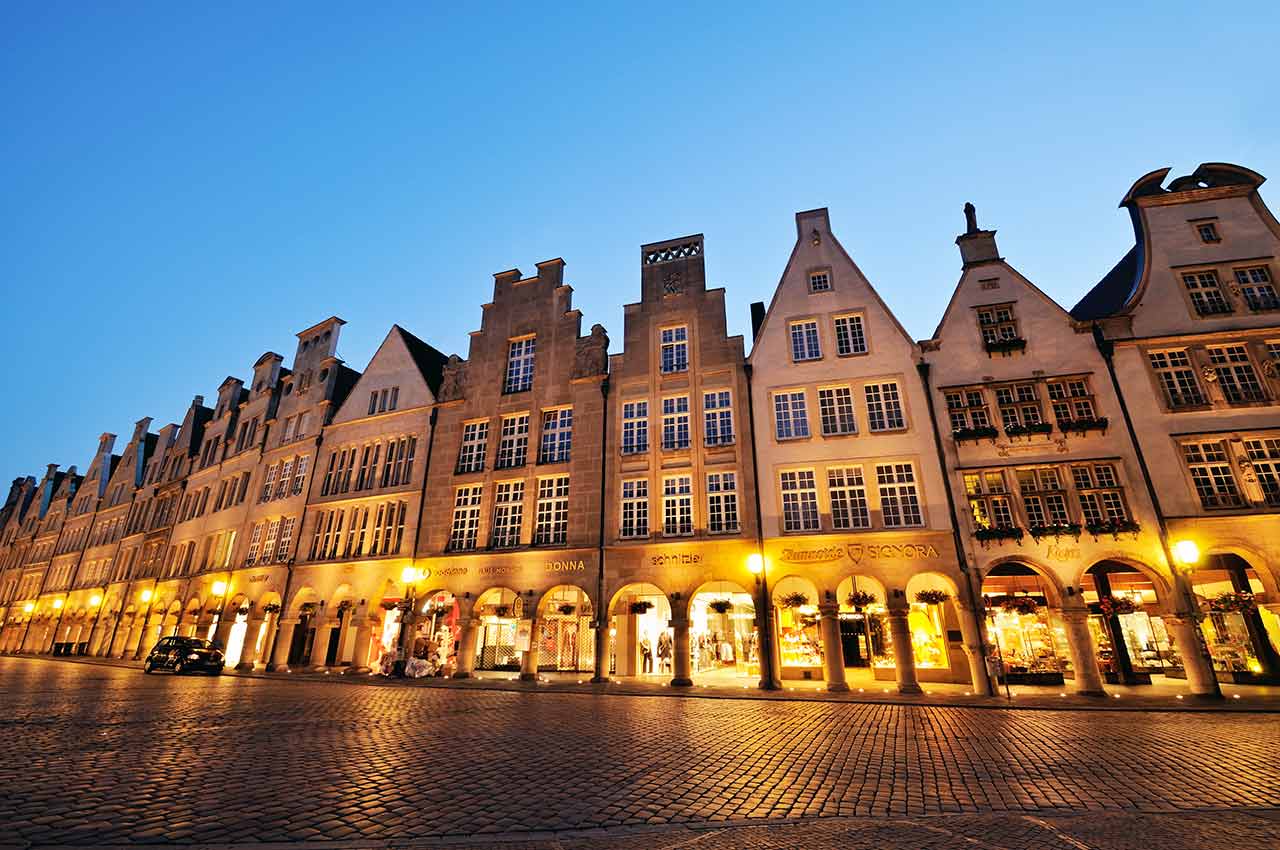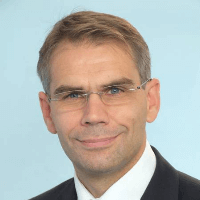
The program includes:
- Initial presentation in the clinic
- clinical history taking
- review of medical records
- physical examination
- laboratory tests:
- complete blood count
- general urine analysis
- biochemical analysis of blood
- inflammation indicators (CRP, ESR)
- indicators of blood coagulation
- neurological examination
- CT/MRI scan
- neuropsychological tests (if indicated):
- ENMG (electroneuromyography)
- EEG (electroencephalography)
- SEPs (somatosensory evoked potentials)
- VEPs (visually evoked potentials)
- BAEP tests (brainstem auditory evoked potentials)
- preoperative care
- MRI-guided laser ablation of brain metastases
- postoperative MRI control
- symptomatic treatment
- control examinations
- the cost of essential medicines and materials
- nursing services
- full hospital accommodation
- developing of further guidance by specialists
in oncology and radiotherapy
How program is carried out
During the first visit, the physician will conduct a clinical examination and neurological examination, and go through the results of the available diagnostic tests. After that, you will undergo the necessary additional examination, such as the laboratory blood and urine tests, MRI scan with obtaining 3D images and creating volumetric images of the whole brain. Based on the results of an additional examination, the physician will clarify the localization of brain metastases. After that, the preparation according to the preoperative standard will begin.
Laser ablation of metastases begins with the formation of access to the brain. When using a catheter with a laser fiber, a hole with a diameter of 3.2 mm is sufficient for this. The miniature size and flexibility of the catheter help preserve healthy brain tissue.
When the catheter reaches metastasis, energy is delivered through the laser fiber. Under the influence of high temperature, metastases are destroyed. The procedure is guided by real-time MRI. Surgeons also assess the temperature of healthy brain tissue using thermographic images to avoid overheating.
After the completion of the operation, you will be transferred to the ward, under the round-the-clock supervision of doctors and nurses. In several days, the attending physician will evaluate the results of the postoperative MRI scans, schedule the date of discharge from the hospital and give you detailed recommendations for further follow-up and treatment.
Required documents
- Medical records
- MRI/CT scan (not older than 3 months)
- Biopsy results (if available)
Service
You may also book:
 BookingHealth Price from:
BookingHealth Price from:
About the department
According to the Focus magazine, the Department of Neurosurgery at the University Hospital Muenster ranks among the top German departments specializing in the treatment of brain tumors!
The department offers the full range of diagnostics and surgical treatment of diseases of the central and peripheral nervous system. The department specializes in the treatment of injuries, tumors and malformations of the skull, brain, spinal cord and nerves, vascular anomalies, spinal nerve root compression syndromes, etc. The department also has advanced experience in the treatment of pain syndromes, epilepsy and motor disorders. The medical services are distinguished by the highest quality, confirmed by the internationally recognized certificates.The department is headed by Prof. Prof. h.c. Dr. med. Walter Stummer.
One of the department's key focuses is brain tumor surgery. The team has special competence in the treatment of gliomas (for example, glioblastomas, anaplastic gliomas, low-grade gliomas) and skull base tumors (for example, acoustic neuromas, chordomas, chondromas, meningiomas). The department has all the modern options and recent medical advances to treat tumors, for example, fluorescence-guided tumor resection using 5-aminolevulinic acid (5-ALA), brain tumor surgery under local anesthesia, intraoperative functional monitoring, the use of Cavitation Ultrasound Surgical Aspirator (CUSA), etc.
Another important focus is spinal surgery. The department offers the full range of diagnostics and treatment of spinal diseases, in particular, degenerative diseases and diseases of the spine and spinal cord caused by cancer. To ensure the optimal treatment results, there is maintained close cooperation with other specialties of the university hospital.
To prescribe the best, customized treatment program for each patient, the department's specialists discuss all the clinical cases within the interdisciplinary tumor boards. When choosing a treatment method, the most important is a care for the patient's health. To this end, the department offers the full range of diagnostics and treatment at the highest scientific level using minimally invasive techniques and the very latest technologies.
The diagnostic and therapeutic range of the department includes:
Surgery for benign and malignant brain tumors, brain meninges and metastases |
|
Diagnostics of the volumetric processes in the brain using stereotactic biopsy | |
Vascular neurosurgery | |
Skull base surgery |
|
Pituitary surgery | |
| Spinal surgery |
|
| Orbital surgery | |
| Functional neurosurgery | |
| Epilepsy surgery | |
| Nerve surgery and pain therapy | |
| Trigeminal neuralgia and hemifacial spasm | |
| Psycho-oncological counseling | |
| Physiotherapy | |
| Other options of diagnostics and surgical treatment of diseases of the central and peripheral nervous system |
Curriculum vitae
Education and Professional Experience
- 1984 - 1991 Medical School, Ludwig Maximilian University, Munich.
- 1988 - 1990 Doctoral thesis defense, Institute for Surgical Research, Grosshadern Hospital, Ludwig Maximilian University of Munich. Subject: "Cerebral protection by locomotor activities in gerbil forebrain ischemia"; summa cum laude.
- 04.1991 Graduation from School of Medicine.
- 04.1991 - 11.1992 Junior Resident, Department of Neurosurgery, Grosshadern Hospital, Ludwig Maximilian University of Munich, Germany.
- 11.1992 - 12.1993 Postdoctoral Scholarship, Crosby Neurosurgical Laboratories, Medical Center at the University of Michigan, Section of Neurosurgery.
- December 1993 - November 2000 Resident, Department of Neurosurgery, Grosshadern Hospital, Ludwig Maximilian University of Munich, Germany.
- 14.11.2000 Board Examination in Neurosurgery.
- 11.2000 - 10.2001 Instructor, Department of Neurosurgery, Munich, Germany.
- 10.2001 - 03.2003 Attending Physician, Department of Neurosurgery, Munich, Germany.
- 20.11.2001 Habilitation.
- 11.2003 Deputy Head, Department of Neurosurgery, University of Duesseldorf.
- 18.10.2007 Appointment as a Professor, Heinrich Heine University Duesseldorf.
- 1.10.2009 Head of the Department of Neurosurgery at the University Hospital Muenster.
Membership in Professional Societies
- 2000 Member of the German Society of Neurosurgery.
- 2003 Member of NCAFW.
- 11.2003 - 2009 Speaker, Section of Neuro-Oncology, German Society of Neurosurgery. .
- 2009 - 2011 Vice-Speaker of the Working Committee on Neuro-Oncology of the German Cancer Society.
- Since 2011 Group Member of the European Organisation for Research and Treatment of Cancer.
- 2011 - 2014 Speaker of the Working Committee on Neuro-Oncology of the German Cancer Society.
- 2011 Appointment in the German Academy of Neurosurgery.
- 2014 Appointed as a Deputy Head of the German Society of Neurosurgery.
- 2016 Appointed as a President of the German Society of Neurosurgery.
Review Activities (selected)
- Since 2003 Acta Neurochirurgica.
- Since 2005 Zentralblatt Neurochirurgie.
- Since 2007 Swiss Medical Weekly.
- Since 2007 Neuroimage.
- Since 2007 Lasers in Surgery & Medicine.
- Since 2008 J Neurooncology.
- Since 2009 Neurooncology.
- Since 2010 Neurosurgery.
- Since 2010 Journal of Neurosurgery, Neurology and Psychiatry.
- Since 2011 Journal of Neurosurgery.
Activities in Editorial Boards
- Since 2009 Editorial Board Member, Photodiagnosis and Photodynamic Therapy.
- Since 2012 Editorial Board Member, Neurochirurgie Scan.
- Since 2013 Editorial Board Member, Neurooncology.
Awards and Honours
- American Association of Neurosurgery / Congress of Neurosurgeons, Joint Tumor Section.
- 1999 Young Clinical Investigator Award presented at the 59th annual meeting of the American Association of Neurological Surgeons, New Orleans.
- 1999 Grosshadern Research Award: First Prize for the presentation "Fluorescence-guided detection of malignant gliomas using 5-ALA-induced prophyrins – experience in 66 consecutive patients", presented at the Grosshadern Research Festival.
- 2002 Tönnis Scholarship awarded at the 53rd Annual Meeting of the German Society of Neurosurgery, Halle.
- 2005 American Association of Neurosurgery / Congress of Neurosurgeons, Joint Tumor Section.
- Journal of Neuro-Oncology presented at the 65th Annual Meeting of the American Association of Neurological Surgeons, New Orleans.
- 2005 Young Neurosurgeon’s Award of the World Federation of Neurosurgery presented at the XIII International Congress of Neurological Surgery, Marrakesh.
- 2005 Honorary Professor, Harbin Medical University, China.
- 2006 Sybille Assmus Research Prize awarded at the Annual Meeting of the Working Group on Neuro-Oncology of the German Cancer Society.
- 12.11.2007 Focus List of Top Oncologists. Nr. 46.
- 2008 Visiting Professor, Department of Neurosurgery, Medical School, University of Dartmouth, Dartmouth, MA, USA.
- 2006 Corresponding Member, Sociedad de Neurocirugía de Levante, Spain.
- 2010 Michael Gruson Memorial Lecturer in Neuro-Oncology, Weill Cornell Medical College New York.
- 2011 Lecturer of the Finnish Society of Neurosurgery.
- 08.2017 Focus List of Top Oncologists.
Photo of the doctor: (c) Universitätsklinikum Münster
About hospital
According to the Focus magazine, the University Hospital Muenster ranks among the top German hospitals!
The hospital belongs to the most prestigious medical institutions in Germany. The hospital is distinguished by a high professionalism of its doctors, state-of-the-art technological equipment and the availability of the most advanced diagnostic and therapeutic capabilities ensuring the first-class medical services. The hospital integrates more than 30 specialized departments, as well as numerous institutes and centers, thus representing all the specialties of modern medicine. The hospital treats more than 64,000 inpatients and 500,000 outpatients every year, which is an indisputable evidence of the highest quality of medical services.
The medical team of the hospital, consisting of more than 10,000 employers, is committed to preserving the physical health of patients, providing them with psychological support and compassionate attitude throughout the entire therapeutic process.
The hospital has succeeded in all specialties of medicine, however, main areas of its specialization include oncology, treatment of cardiovascular, neurological diseases, transplant medicine, psychiatry and psychosomatics, pediatrics with a special focus on rare diseases in children, traumatology, orthopedics, prenatal medicine, and reproductive medicine. In addition, key importance is given to scientific research and training of medical students, so that the specialists of the hospital make a momentous contribution to the development of medicine as a whole.
Photo: (с) depositphotos
Accommodation in hospital
Patients rooms
The patients of the University Hospital Muenster live in single or double rooms. The rooms are made in bright colors and modern design. Each room has an ensuite bathroom with shower and toilet. The standard room includes an automatically adjustable bed, a bedside table, a table and chairs for receiving visitors, a telephone and a TV. The hospital offers access to the Internet. If desired, the patient can also stay in the enhanced-comfort room.
Meals and Menus
The patients of the hospital are offered a tasty and balanced three meals a day: breakfast, lunch and dinner. The menu always features diet and vegetarian dishes. If for any reason you do not eat all the food, you will be provided with an individual menu. Please inform the medical staff about your dietary preferences prior to the treatment.
Further details
Standard rooms include:
Religion
Religious services are available upon request.
Accompanying person
During the inpatient program, an accompanying person may stay with you in a room or at the hotel of your choice.
Hotel
During the outpatient program, you can live at a hotel of your choice. Managers will help you to choose the most suitable options.
The hospital offers a full range of laboratory tests (general, hormonal, tests for infections, antibodies, tumor markers, etc.), genetic tests, various modifications of ultrasound scans, CT scans, MRI and PET / CT, angiography, myelography, biopsy and other examinations. Treatment with medications, endoscopic and robotic operations, stereotaxic interventions is carried out here, modern types of radiation therapy are also used. The hospital offers patients all the necessary therapeutic techniques.
- Stereotactic radiotherapy, including intracranial one
- Thulium and holmium laser enucleation of the prostate
- HIPEC for peritoneal cancer
- Imlantation of mechanical heart support systems
- Assisted reproductive technologies
These are arthrosis and sports injuries of the joints, benign neoplasms and malignant tumors of various localizations, spinal injuries, osteoporosis, benign prostatic hyperplasia, urolithiasis, inflammatory bowel disease and other pathologies.
- Traumatology and hand surgery
- Urology
- General and abdominal surgery
- Cardiology and cardiac surgery
- Obstetrics and gynecology
The hospital's team consists of more than 10,000 highly qualified employees.
